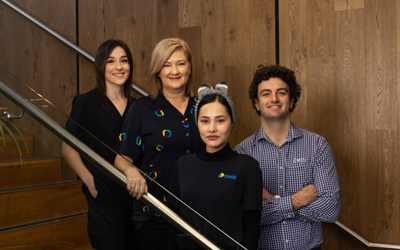What are the treatment options for chronic myeloid leukaemia?
The primary treatment options for chronic myeloid leukaemia (CML) targeted therapies and bone marrow transplant. The type of treatment you receive will depend on a number of different considerations, such as your overall health and your treatment preferences. This page aims to give you a comprehensive overview of how chronic myeloid leukaemia treatment works.
Targeted therapies for chronic myeloid leukaemia
Targeted therapy is the primary treatment for chronic myeloid leukaemia. Targeted therapies use specialised drugs to destroy leukaemia cells by focusing on abnormalities found within cancer cells while avoiding normal, healthy cells.
Common targeted therapy drugs for chronic myeloid leukaemia include:
Imatinib
Dasatinib
Nilotinib
Ponatinib
These drugs are known as tyrosine kinase inhibitors (TKIs). CML cells contain a genetic mutation called BCR-ABL which make the BCR-ABL protein. This protein signals to CML cells to grow and spread. Tyrosine kinase inhibitor drugs work by targeting and blocking this BCR-ABL protein, stopping the growth and spread of CML cells. They are given orally as a tablet once or twice daily. Individual tyrosine kinase inhibitor drugs work in slightly different ways and, depending on how you respond to treatment, your doctor may recommend switching from one to another to get the best possible result.
Bone marrow transplant for chronic myeloid leukaemia
Bone marrow transplants, which are also referred to as stem cell transplants, replace cancerous bone marrow with healthy stem cells that help stimulate the development of new, healthy bone marrow. In order to destroy leukaemia-producing bone marrow, you may first receive high doses of chemotherapy before the healthy stem cells are transplanted. An allogenic stem cell transplant is the most common treatment for CML, which uses donor stem cells.
Clinical trials for chronic myeloid leukaemia
Icon offers a wide range of clinical trials providing patients with access to new and evolving treatments. Clinical trials offer hope and opportunity and contribute to breakthroughs in treatment for future cancer patients.

Treatment by phase for chronic myeloid leukaemia
Following a CML diagnosis, your oncologist will develop your treatment plan as part of a multidisciplinary team based on the phase of your cancer.
Common treatment options for each phase of CML include:
Chronic phase
Targeted therapy drugs are the standard treatment option for chronic phase CML which involve tyrosine kinase inhibitor (TKI) drugs. As there are many different types of TKI drugs, if one TKI does not work for you, you may try different options to find the one that works best for your cancer.
Accelerated phase
Treatment options for accelerated phase CML will depend on the treatments you’ve already had. Accelerated CML is treated similarly to chronic phase CML but is unlikely to have a long-term response to treatment. An allogeneic stem cell transplant may also be recommended if you are young and healthy enough, however transplants are usually not recommended until leukaemia is in remission.
Blast phase
Once CML has reached the blast phase, cancer cells have become abnormal and behave more like acute leukaemia cells. Targeted therapy drugs continue to be used as the primary form of treatment for blast phase CML. Although these cancer cells are likely to behave like acute myeloid leukaemia cells, CML cells are less receptive to chemotherapy treatment. If blast phase CML responds to treatment and a chronic phase can be achieved, proceeding to allogeneic stem cell transplant is the only curative option. When blast phase CML does not respond to treatment then palliative care involvement to manage symptoms and reduce pain is important. Radiotherapy may be used to decrease swelling in the spleen and lessen bone pain.







